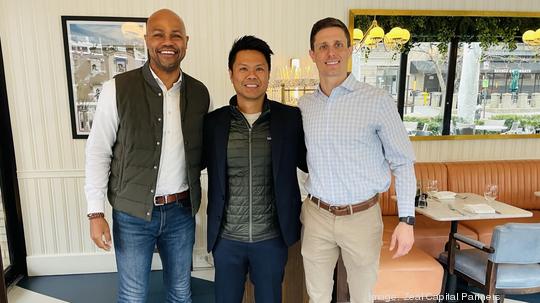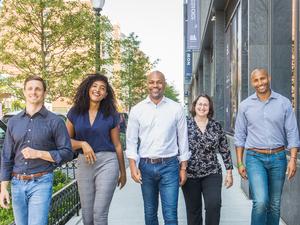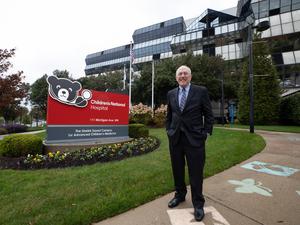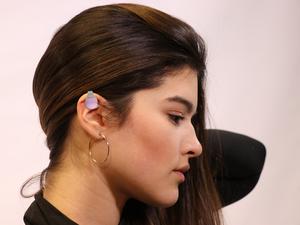
D.C.’s Zeal Capital Partners has made its first local investment, about a year after raising $62 million that it’s been deploying into fintech and future of work companies with diverse leadership across the U.S.
The venture capital firm, led by former AT&T executive Nasir Qadree, has put $1 million into EQL Finance Inc. as the lead investor in the startup’s $2.4 million seed financing round. The 1-year-old D.C. fintech offers interest-free loans to consumers struggling to make ends meet and aims to make its money largely by selling financial education tools.
New York’s Acumen Fund and Burlingame, California’s Goodwater Capital participated in EQL’s funding round, as did local and international angels, according to EQL co-founder and CEO Eddie de Guia. Prior to this round, the company had raised $200,000 from angel investors and Boulder, Colorado-based Techstars. EQL was part of the accelerator operator’s initial Equitech Accelerator cohort, built for startups led by underrepresented founders or working to address inequities.
Zeal Capital’s road map
Zeal’s investment is its 13th since launching its first, and oversubscribed, fund in July 2021. As part of the investment, Zeal Principal Andy Will is joining EQL’s board of directors.
Zeal backs tech-enabled, early-stage ventures often overlooked by traditional investors because of background, gender, ethnicity, geography or experiences. It aims to help close the racial and gender wealth gaps with what it describes as a new investment discipline.
The strategy, coined inclusive investing, involves a handful of focuses — on ventures with diverse management teams, across markets and in sectors with opportunity for innovation, that bring both financial returns and social impact. It also intends to serve as a model for other firms, “encouraging storied investment franchises and emerging managers to implement this investment discipline,” Qadree said.
To date, Zeal has also invested in the Dallas workplace equity startup Kanarys, New York savings platform Esusu and San Francisco retirement startup Icon Savings Plan. It aims to make 25 to 30 investments over four years and Qadree, its founder and managing, said last year that it is likely to launch a second fund targeting a broader range of companies with diverse leadership.
Will said Zeal targeted EQL for this investment because it is “incentivizing better financial behavior, building positive credit history, enabling cost savings and teaching financial literacy.” He called the company “a fantastic representation” of the firm’s inclusive approach to investing.
EQL’s work is especially critical now, Qadree added, as high inflation and fears of a recession have “only intensified” the need for “broader and more equitable access to consumer loans."
EQL Finance’s road map
EQL is developing products for consumers, who “deal with issues like food stability, paying utilities, getting to and from work, and covering medical costs,” de Guia said. “We want to reach as many people as we can.”
EQL provides families and individuals $300 interest-free loans for emergency expenses, payable over a few years. The company also sells a subscription service to customers who want access to additional products and services such as coupons, credit building and financial education tools.
The startup is still nailing down its pricing model, but expects revenue to come from its subscription service as well as advertisements on its platform, de Guia said. He leads EQL alongside co-founders Paul Pierre, its chief technology officer, and Stefan Wille, its chief financial officer.
The company’s 11-person team, of which nearly half identify as people of color, is looking to fill two engineering roles this quarter, de Guia said.
EQL, signifying “equal,” evolved from de Guia’s experience as a first-generation Filipino-American, he said. “I saw how my immigrant parents struggled with understanding finances, high-interest debt, and the stress it caused.” His mother, a nurse at Howard University Hospital, and his father, a postman at the U.S. Postal Service, “like many other families were living paycheck to paycheck, and dealing with the effects of taking on credit to pay for basic needs,” he said.
After digging into the data around student debt years later, he wanted to build a product to address the problem, he said. “There are millions of stories in America that have shades of my parents’ experience.”




